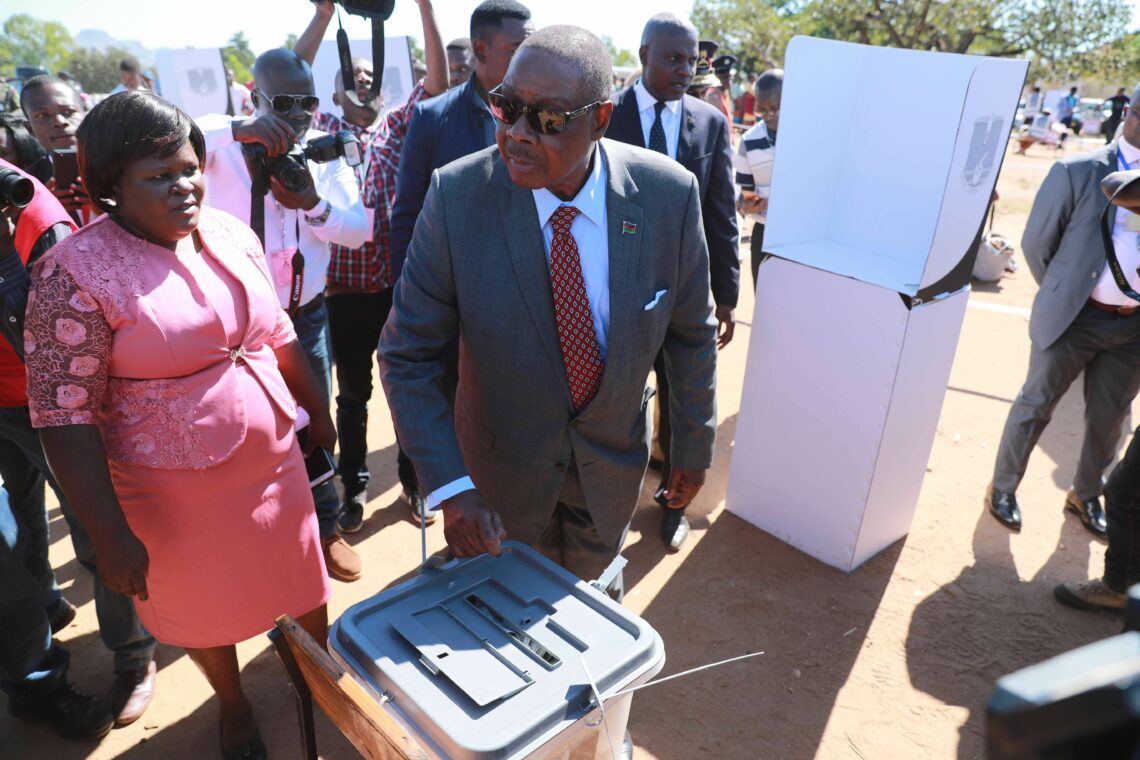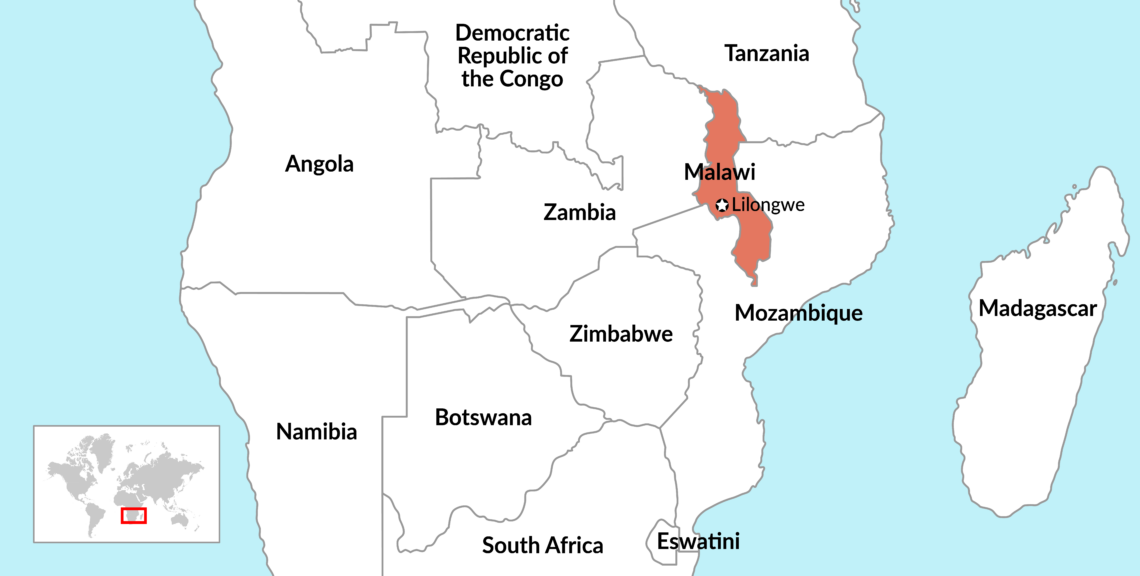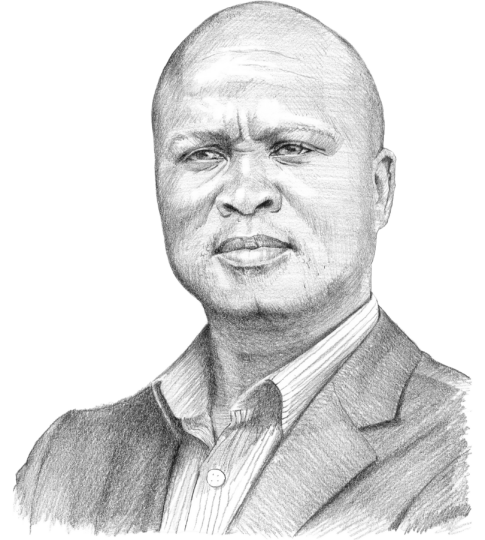Scenarios for Southern Africa after Malawi’s election ‘miracle’
In the 2019 elections, President Peter Mutharika closely won a second term in Malawi. Alleging irregularities, the opposition coalition obtained an annulment of the results. Surprisingly, a second election in June 2020 saw the opposition leader peacefully elected.

In a nutshell
- Controversial elections in Malawi were declared null by the court
- A second vote brought the opposition coalition to power
- The court ruling could influence regional politics
Among the latest political developments in Southern Africa, Malawi’s recent power transition stands out. The opposition coalition won the national parliamentary elections after a court-ordered rerun of a controversial election in 2019. Alleging widespread vote rigging, opposition parties challenged the results in court.
It is not uncommon for opposition parties in African societies to raise concerns over electoral irregularities. What is exceptional about the Malawian case is that those complaints landed in a court of law, where the elections were annulled and a rerun ordered. The judges referred to the 2019 elections as “second-rate,” the strongest judiciary statement on the continent regarding the credibility of a vote since a Kenyan court nullified elections in 2017.
Malawi’s founding political parties, which participated in the liberation movement, are in decline. In a region dominated by single-party systems, the country’s recent experience could show the way for opposition politics.
Liberation parties
In Malawi, the opposition coalition was formed before the elections – not after, as is often the case when facing a credibility crisis. Despite the widespread inefficiencies of governments in the Southern African Development Community (SADC), other opposition groups have not been able to dislodge entrenched liberation parties.
What took place in the Malawian elections could be a one-off phenomenon that will not trigger further changes. But in the context of the region, it is significant that an election was followed by an intervention of the constitutional court, possibly changing the fate of the impoverished and corruption-ridden country. For an opposition alliance to peacefully secure an electoral victory, with the ruling party willingly stepping down, is also unprecedented.
Courts are beginning to intervene because political regimes have become unresponsive.
After this historic victory in June 2020, the leader of Malawi’s new ruling coalition, Lazarus Chakwera, received congratulatory messages from opposition parties across the region. The opposition in South Africa, the Democratic Alliance (DA), will certainly be studying his feat. The region remains dominated by former liberation parties such as the South West African People’s Organisation (SWAPO) in Namibia; the African National Congress (ANC) in South Africa; the People’s Movement for the Liberation of Angola (MLPA); the Botswana Democratic Party (BDP); and the Zimbabwean African National Union Patriotic-Front (ZANU-PF).
Had it not been for the independence of its judiciary, Malawi could have been no exception. Meanwhile, in countries like South Africa, the judiciary has come under political pressure and open criticism from the ruling ANC because of its attempts to foster electoral reforms as a constitutional requirement. Courts are beginning to intervene because political regimes have become unresponsive. This has made governments in the region wary. The events in Malawi could be behind a renewed government crackdown on opposition and critics in Zimbabwe.
Facts & figures

The developments in Zimbabwe put a damper on opposition hopes in the region. The ZANU-PF government has recently begun a widespread intimidation campaign. There are reports of harassment and journalists have allegedly been arrested by the military. The current president, Emmerson Mnangagwa, came to power after staging a military coup against longtime Zimbabwean leader Robert Mugabe. The putsch strengthened the alliance between ZANU-PF and the military, which is also behind the current climate of violence. Because of the smile belying his brutal methods, Mr. Mnangagwa has been dubbed “the Crocodile.”
Under the leadership of ZANU-PF, Zimbabwe has become more daring as a regional actor. When Pretoria raised concerns about the recent crackdown, ZANU-PF responded harshly and pointed to reports of police brutality in South Africa during the Covid-19 lockdown. South Africa has since sent an envoy to Zimbabwe to de-escalate the crisis. However, President Cyril Ramaphosa’s liaison to Harare did not meet with opposition parties in the country. South Africa has consistently employed “silent diplomacy” in relation to the political crisis in Zimbabwe, a policy that goes back to President Thabo Mbeki’s administration, which closed its eyes to Robert Mugabe’s excesses.
Liberation parties seem intent on preserving the status quo.
The 40th SADC Ordinary Summit of Heads of State and Government was held in August, but no statement was made on the situation in Zimbabwe. This is noteworthy because South Africa is greatly affected by the political and economic crisis in Zimbabwe, with millions of desperate Zimbabweans crossing the border to look for livelihoods. One would have expected Pretoria to take a firm and pragmatic position toward Harare given the socioeconomic impact of the crisis.
In circumstances where ruling liberation parties seem intent on preserving the status quo, the region could come to the conclusion that Malawi is an exception rather than a harbinger of what lies ahead for opposition politics in the region.
Scenarios
The electoral victory obtained by the opposition coalition in the Malawian elections will inspire opposition maneuvers in the region, particularly in South Africa, Zimbabwe, and perhaps even in Botswana. The idea of a preelection coalition, which was instrumental in this case, will attract the attention of the struggling opposition parties in the region. However, the Malawian victory will not be welcomed by many governments in the region because it dislodged an entrenched liberation party.
The muted regional response to the crackdown on the opposition in Zimbabwe shows that no country is willing to speak up to defend political pluralism. Due to the lack of political will in the region to undergo the electoral reforms needed to foster more inclusion in politics, the task of driving change will be left to the judiciary.
The independence of the judiciary is a concern both at the regional and national levels in the SADC. If independent judicial systems emerge, more electoral reforms could take place. However, advocacy for judiciary independence is left to overwhelmed civil society organizations and struggling opposition parties across the region. Meanwhile, the judiciaries are under government pressure to stay out of politics, a phenomenon that will hurt governance and democratic institutions.








